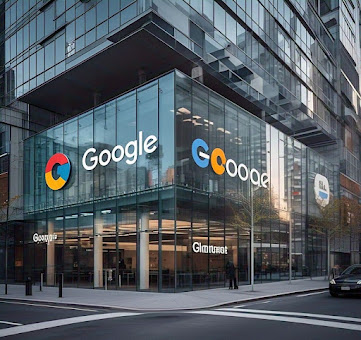The goodwill generated by the parent company of Google-Alphabet Inc.-not only has other ventures but also other wreaths around the neck of the search engine. The significant entities that sit under Alphabet include YouTube, Waze, DoubleClick, Nest, Looker, Fitbit, and Mandiant.
Founded in 1998 as a search engine company
under the name Google Inc., since then Google has become the world's largest
and most used search engine, with 91% of the global search market.
In the span of two decades, it has
diversified more than far beyond search engines. It got reorganized in 2015 and
formed a holding company named Alphabet. This parent company holds Google, its
largest subsidiary, and several others. Some companies are subsidiaries of
Google; others are separately owned by Alphabet.
KEY TAKEAWAYS
·
Alphabet, Google's parent
company, is a tech giant with a $2.05 trillion market cap.
·
Although Google is its flagship
subsidiary, Alphabet has grown through a number of major acquisitions in the
area of hardware and software. Clearly, in this context, we will examine some
of the more prominent companies owned by Alphabet, such as YouTube, Nest, and
Waze.
Alphabet: A Synopsis
As of Aug. 22, 2024, Alphabet has grown to
become one of the largest tech conglomerates with $2.05 trillion in market
capitalization. The company reported a net income of $73.80 billion on $307.39
billion in revenue for the year 2023. Revenue rose 8.7% from 2022 while net
income went up 23.05%.
Most of Alphabet's income comes in the form
of advertising. The company provides performance advertising, which connects
advertisers to users with measurable results. In contrast, brand advertising
seeks to build awareness and affinity among users with brands. In this sense,
advertising is central to the strategy of Alphabet and has affected key
acquisition decisions, such as the 2008 buyout of DoubleClick (see below).
However, Google earns revenue through avenues
like sales of apps, in-app purchases, hardware, and licensing & service
fees, including those from Google Cloud and other products. Acquisitions have
been made to improve these businesses.
The Alphabet is always on a lookout for new
technologies that it can add to its range of businesses. When smaller companies
are acquired, this is one method that larger companies use to eliminate
emerging competition; these acquisitions lessen competition for Alphabet. One
reason Alphabet has found itself in a number of antitrust suits filed by the
U.S. Department of Justice (DOJ) and several other parties.
Below we examine seven of the major
acquisitions made by the company in particular.
1. Mandiant
Business type: Cybersecurity
Acquisition price: $5.4 billion
Acquisition date: Sept. 12, 2022
On March 8, 2022, Google announced its
intention to acquire publicly traded cybersecurity firm Mandiant, Inc. (MNDT)
for $23 per share, with a total consideration of roughly $5.4 billion. This
company focused on cybersecurity testing and cyber-incident response was
combined into Google’s cloud computing division to better secure cloud data.
Mandiant went public in 2013 after FireEye
bought the company for nearly $1 billion. FireEye sold the FireEye-branded
product line and its name to Symphony Technology Group for $1.2 billion in June
2021, effectively leaving the Mandiant Solutions software business inside the
publicly traded company. The name was changed back to Mandiant in October 2021.
There were reports in February 2022 that
Microsoft (MSFT) was interested in acquiring Mandiant. Google’s offer of $23
per share represented a premium of 45% to the share trading price on February
1st, 2022-before the Microsoft news. This also happened to be one of the
largest acquisitions in company history, second only to its purchase of
Motorola Mobility in 2012 for $12.5 billion.
2. Fitbit
Business type: Wearable fitness devices and
app
Acquisition price: $2.1 billion
Acquisition date: Jan. 14, 2021
Fitbit was started in 2007 by James Park and
Eric Friedman with the goal of creating a wearable product that would use
wireless technology to aid users in health and fitness enhancements. The
company's products consist of smartwatches, an armband fitness tracker, a
digital fitness tracking app, as well as related gear, accessories, and
services.
Google completed the acquisition of Fitbit
during January 2021, after the announcement of the deal in November 2019. This
acquisition has enriched Google's list of wearable devices following the
acquisition of the Timex smartwatch technology in 2019.
The acquisition was completed after
restrictions imposed by antitrust authorities in the European Union were
imposed to protect health data of users and ensure competition within the
sector of wearable technology. Google stressed that this acquisition is about
devices, not data, and further committed that user data will not be used for
Google ads.
3. Looker
Business type: Business intelligence software
and data analytics
Acquisition price: $2.6 billion
Acquisition date: Feb. 13, 2020
Founded in 2011 by Lloyd Tabb, Looker helps
companies extract and analyze data with ease. Most at-the-time legacy business
intelligence systems required persons that use them to have an engineering and
programming background to extract and analyze data. They had kept Looker simple
by taking programming queries and modifying them to read more like natural
languages such as English, so that users could do data analytics without
talking "code".
In June 2019, Google announced its intention
to acquire Looker, which was completed in 2020, and the acquisition was put to
good use through the Google Cloud service. At Google Cloud, Looker helps
customers speed up their ability to analyze data, provide business
intelligence, and create data-driven applications.













0 Comments